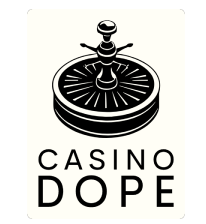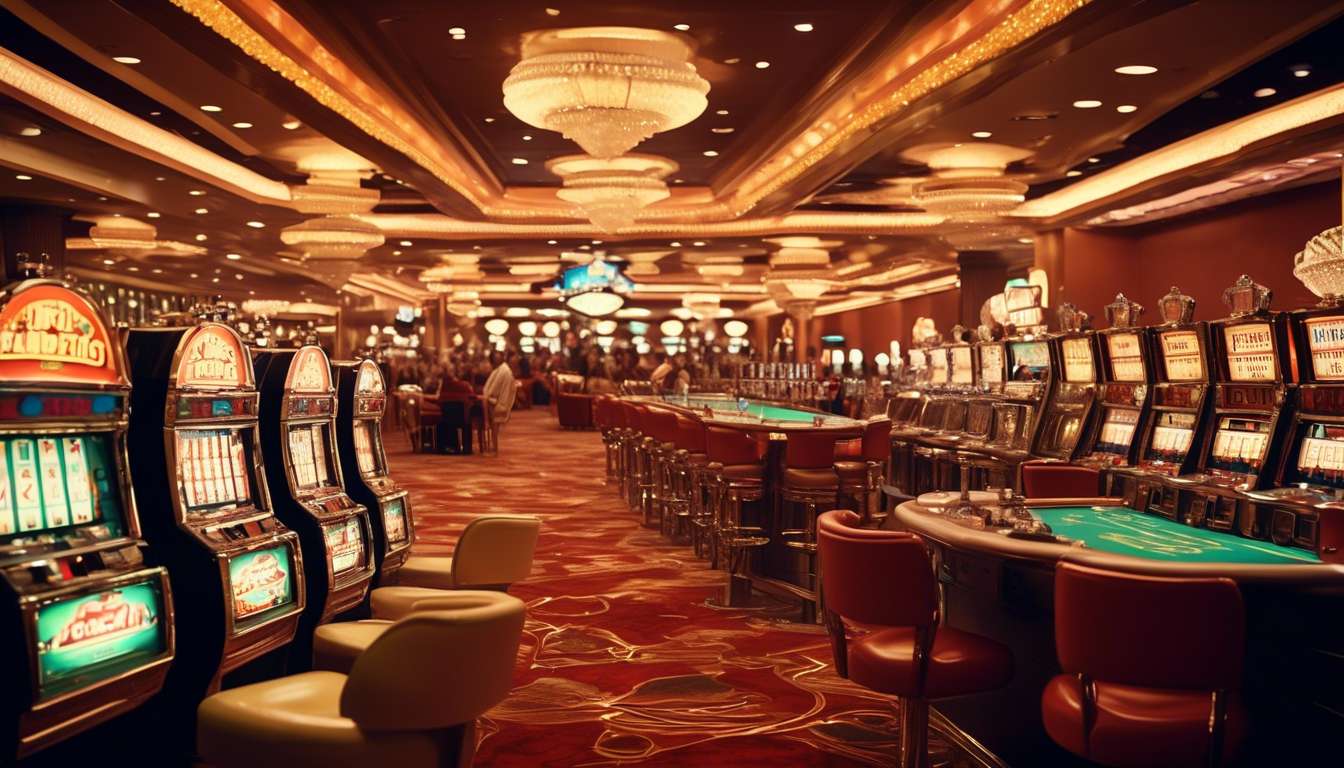We find ourselves captivated by the intrigue and glamour of Martin Scorsese’s film "Casino," a cinematic masterpiece that transports us to the bustling, neon-lit world of Las Vegas in the 1970s and ’80s.
As we delve into the narrative, we are compelled to ask: how much of this gripping tale is rooted in reality? Together, we explore the real-life inspirations behind the film, uncovering the stories of the infamous characters who walked the thin line between opulence and crime.
We journey through the corridors of power and deceit, examining the extent to which the film mirrors the true events that unfolded in the underbelly of the casino empire. Our quest is not only to separate fact from fiction but to understand the intricate web of ambition, betrayal, and survival that defined this era.
Join us as we unravel the truth behind "Casino" and its portrayal of a fascinating chapter in American history.
Historical Context
The movie "Casino" draws heavily from the real-life events of organized crime in Las Vegas during the 1970s and 1980s. This historical context immerses us in a world where the glittering lights of Las Vegas masked darker dealings. Martin Scorsese masterfully captures this era, bringing us into a time when the mob held significant power over the city’s casinos. We can almost feel the thrill and danger of this period as we explore how organized crime shaped the landscape of Las Vegas.
In Scorsese’s portrayal, Las Vegas isn’t just a backdrop; it’s a character in its own right, reflecting the ambitions and excesses of those who sought fortune and power. The city’s allure attracted both legitimate business and criminal elements, intertwining their fates.
As we watch, it’s like we’re part of a community, uncovering shared stories of:
- Ambition
- Greed
- The inevitable consequences that followed
Real-Life Characters
Central to "Casino" are the real-life figures who inspired its characters, vividly bringing to life the tangled web of power and betrayal in Las Vegas. Martin Scorsese masterfully portrays the intricate dance of organized crime and ambition in this world.
The film’s protagonist, Sam "Ace" Rothstein, is based on Frank "Lefty" Rosenthal, a real-life casino manager who thrived in the glitzy yet perilous environment of 1970s Las Vegas. Rosenthal’s story intertwines with Anthony “Tony the Ant” Spilotro, who inspired Joe Pesci’s character, Nicky Santoro.
Spilotro’s infamous reputation in organized crime circles made him a key player in Las Vegas’s underworld. We can’t help but feel the tension and loyalty among these figures, who navigated a landscape where alliances were as fragile as they were crucial.
With Scorsese’s direction, we find ourselves deeply immersed in a narrative where real people and their larger-than-life exploits leave an indelible mark on the city’s history.
Casino Operations
In "Casino," we delve into the intricate operations that kept the gaming floors bustling and the cash flowing, revealing the meticulous strategies behind the façade of glitz and glamour. Martin Scorsese masterfully depicts how Las Vegas casinos, with their shimmering lights and constant buzz, were not just entertainment hubs but tightly controlled operations.
We see how every detail, from the way chips moved to how winnings were paid, was orchestrated with precision to maximize profit. While the movie highlights the legitimate side of casino management, it also sheds light on the undercurrents of organized crime lurking beneath the surface.
The operations were a dance between maintaining the allure for tourists and managing the real power players behind the scenes. We’re drawn into a world where the stakes were high, not just for gamblers, but for those running the show, reflecting the dynamic and often dangerous interplay of ambition and control that defined Las Vegas at the time.
Mob Influence
The gritty reality of mob influence in "Casino" unfolds as we witness how the Mafia’s grip extended into every corner of Las Vegas’s vibrant nightlife. Martin Scorsese masterfully depicts organized crime’s pervasive reach, reminding us that Las Vegas was once more than just bright lights and endless entertainment. It was a playground where the Mafia thrived, controlling casinos and skimming profits with precision.
The pull of belonging to this secretive world is palpable, where power and loyalty were currency. The mob’s influence went beyond the casino floors; it seeped into the very fabric of the city. Through Scorsese’s lens, we experience the allure and danger of a community bound by the unspoken rules of organized crime.
Delving deeper into this world, we recognize that the Mafia’s influence wasn’t just about money. It was about creating a network of trust and fear, crafting a society where everyone played a part in maintaining the illusion of glamour and legitimacy.
Law Enforcement
Many law enforcement officers were caught in a dangerous dance, trying to combat the Mafia’s stranglehold on Las Vegas while grappling with corruption within their own ranks. We were tasked with a daunting mission: dismantling the web of organized crime that had infiltrated Sin City. It wasn’t just about enforcing the law; it was about reclaiming our community from the shadows that loomed large over the cityscape.
As we faced the daunting task of untangling these criminal networks, the allure of power and money led some of us astray, complicating our efforts. However, those of us committed to justice understood that our roles were essential in restoring integrity to Las Vegas.
We were the unsung heroes in a narrative that Martin Scorsese later immortalized on screen, capturing the essence of a city caught between glamour and vice.
Together, we navigated a treacherous landscape, determined to expose the truth and protect the city we called home.
Scorsese’s Adaptation
In crafting his film "Casino," Scorsese masterfully captured the turbulent era of Las Vegas, drawing audiences into the intricate dance between opulence and organized crime. He didn’t just present a story; he transported us into a world where glitz and grit coexist, and every roll of the dice carried high stakes.
Martin Scorsese, with his keen eye for detail and grasp of human complexity, gave us a window into the lives of those who walked the fine line between legitimacy and lawlessness.
We felt the pulse of Las Vegas, a city teeming with life and lurking dangers. Scorsese’s adaptation took us beyond the surface by:
- Exploring the dynamics of power and loyalty that defined the era.
- Allowing us to become part of this world, experiencing both allure and peril.
His cinematic vision resonated with us, offering a glimpse into how organized crime shaped the city’s destiny, forever intertwining fiction and reality.
Accuracy of Events
While watching "Casino," we can’t help but wonder about the factual accuracy of the events portrayed on screen. Martin Scorsese’s masterful storytelling immerses us in the glitzy yet perilous world of Las Vegas during the 1970s and 80s. It’s fascinating how Scorsese captures the essence of organized crime’s grip on the city, but we must ask — how much of it truly happened?
The film is based on real events and characters, primarily inspired by the life of Frank “Lefty” Rosenthal, a real-life casino executive with ties to the mob. Scorsese weaves a narrative that mirrors reality, yet some dramatization is inevitable. We recognize that certain scenes have been amplified for cinematic effect, but the core story remains rooted in truth.
Key Points about the Film’s Connection to Reality:
- The character of Sam "Ace" Rothstein is based on Frank "Lefty" Rosenthal.
- The portrayal of the mob’s influence over Las Vegas casinos reflects historical truths.
- Some plot elements are dramatized for cinematic impact.
Together, we delve into this portrayal, aware that while some artistic liberties were taken, the film maintains a strong connection to the true events that shaped Las Vegas’s underworld. We appreciate how Scorsese captures this captivating era with authenticity and flair.
Legacy and Impact
"Casino" leaves a lasting impression by vividly illustrating the intertwined destinies of power, greed, and ambition in a bygone era of Las Vegas. Martin Scorsese masterfully transports us to a world teeming with organized crime, where the glittering facades of casinos conceal the shadows of corruption and danger. Through his lens, we become part of this exclusive yet tumultuous world, feeling the pulse of a city that never sleeps and understanding the high stakes that ruled its streets.
In crafting this narrative, Scorsese didn’t just create a film; he captured an era that continues to resonate with us. The film’s impact extends beyond entertainment, offering a gritty portrayal of the complex relationship between Las Vegas and organized crime.
We find ourselves drawn to the characters, their flaws and ambitions reflecting our own desires for power and belonging. "Casino" challenges us to ponder the price of ambition and the transient nature of success in a city built on dreams and deception.
Conclusion
"Casino" is based on a true story, drawing inspiration from real-life events and individuals involved in the world of organized crime and casino operations.
Through Martin Scorsese’s adaptation, the film captures the essence of the era with a mix of accuracy and dramatization.
The legacy of "Casino" continues to resonate with audiences, offering a glimpse into the dark and complex underworld of Las Vegas during that period.

